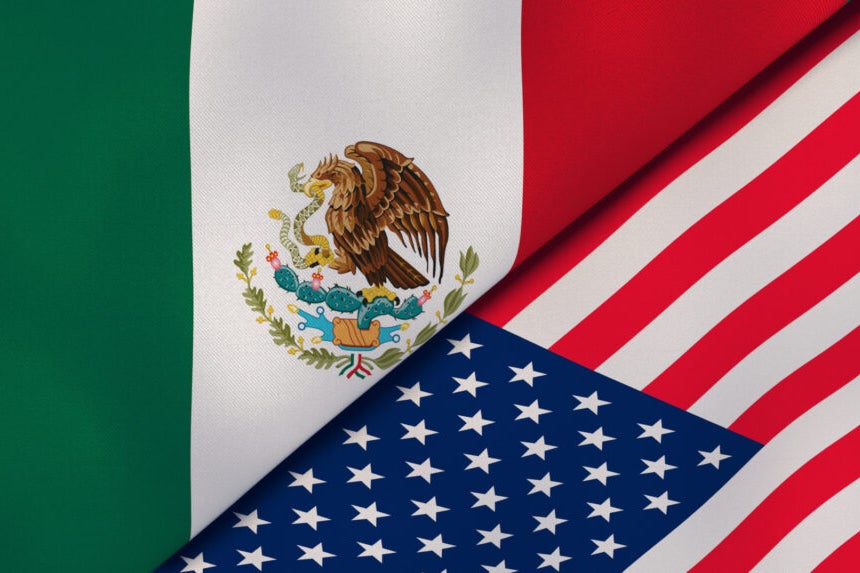Amazon’s New Advantage: Understanding the Impact of Mexico’s Import Tariffs
As Mexico rolls out new import tariffs, the landscape of e-commerce is poised for a significant transformation. Analysts suggest that this development could offer established giants like Amazon a distinctive advantage, particularly in the face of rising competition from emerging platforms like Temu and Shein. In this article, we’ll explore the implications of these tariffs, how they could reshape the market dynamics, and what this means for consumers and competitors alike.
The Rationale Behind Mexico’s Import Tariffs
Mexico’s government has introduced these import tariffs as part of a broader strategy to protect local industries and enhance national economic growth. By increasing the cost of foreign goods, the aim is to encourage consumers to buy domestic products, thus stimulating local manufacturing and creating jobs. This initiative reflects a growing trend among nations to prioritize local businesses in an increasingly globalized market.
However, while these tariffs may support local industries, they also create an uneven playing field for international companies, particularly in the e-commerce sector. For major players like Amazon, the new tariffs could serve as a double-edged sword—presenting challenges while simultaneously opening doors to new opportunities.
Amazon’s Strategic Positioning
Amazon has long established itself as a dominant force in online retail, leveraging its extensive logistics network and diverse product offerings. The implementation of Mexico’s import tariffs could accelerate Amazon’s market presence in several ways:
- Localized Fulfillment Centers: Amazon’s investment in fulfillment centers within Mexico allows it to circumvent tariffs on imported goods. By stocking products locally, Amazon can offer competitive pricing and faster delivery times, making it an attractive option for consumers.
- Enhanced Product Range: With the potential increase in costs for imported goods, Amazon can capitalize on its vast marketplace to promote local sellers and products. This move not only supports Mexican vendors but also enriches Amazon’s portfolio with unique offerings.
- Brand Trust and Loyalty: Consumers may gravitate towards established brands like Amazon, which promise reliable service and quality products, especially during times of economic uncertainty.
Challenges for Emerging Competitors
Emerging competitors such as Temu and Shein face a tough road ahead amidst these new tariffs. Both platforms have rapidly gained popularity by offering low-cost products and broad selections. However, the new tariff landscape presents several challenges:
- Increased Costs: As import tariffs rise, the cost of goods for these companies may increase, leading to higher prices for consumers. This could diminish their competitive edge, which is largely based on affordability.
- Logistical Complexities: Unlike Amazon, which has a robust logistics framework, smaller competitors may struggle to navigate the complexities introduced by tariffs, such as customs duties and regulatory compliance.
- Brand Perception: With a growing emphasis on supporting local businesses, consumers might prioritize companies perceived as contributing to the local economy over foreign brands.
Market Dynamics in Flux
The introduction of import tariffs is likely to trigger a series of shifts across the entire market landscape. Here’s how:
- Consumer Behavior Changes: As prices adjust, consumers may rethink their purchasing habits. They might opt for local products or look for vendors that can offer better value, such as Amazon with its local sourcing strategies.
- Partnership Opportunities: Amazon could forge partnerships with local manufacturers, creating a win-win situation that benefits both parties. Local brands could gain exposure, while Amazon enhances its product offerings.
- Innovation in E-commerce: Other players in the market may need to adopt innovative strategies to compete. This could include improving supply chain efficiency or offering unique products that appeal to local tastes.
Consumer Benefits and Opportunities
For consumers, the rise of import tariffs and the subsequent responses from e-commerce giants like Amazon might lead to a host of benefits:
- Greater Product Variety: With a potential increase in local offerings, consumers could find a wider range of unique products that are tailored to their preferences.
- Improved Customer Service: Established companies like Amazon are likely to invest more in customer service to maintain their competitive edge, leading to better consumer experiences.
- Increased Awareness of Local Brands: As Amazon promotes local sellers, consumers will become more aware of domestic products, fostering a sense of community and support for local economies.
The Future Outlook
As the dust settles on the implementation of these tariffs, the future of e-commerce in Mexico will depend on how effectively companies can adapt to the changing landscape. For Amazon, this could mean enhanced growth and market penetration, while emerging competitors will need to rethink their strategies to remain relevant.
In conclusion, Mexico’s new import tariffs are not just a policy change; they signify a potential turning point in the e-commerce sector. Established players like Amazon may find in these tariffs an opportunity to solidify their dominance, while new entrants face significant hurdles. As the market evolves, both consumers and companies will need to navigate these changes, ultimately shaping the future of online retail in Mexico.
As we look ahead, it’s clear that this shift in import policy could lead to a more dynamic and competitive market, benefiting consumers and fostering innovation across the board.
See more Business Focus Insider Team

